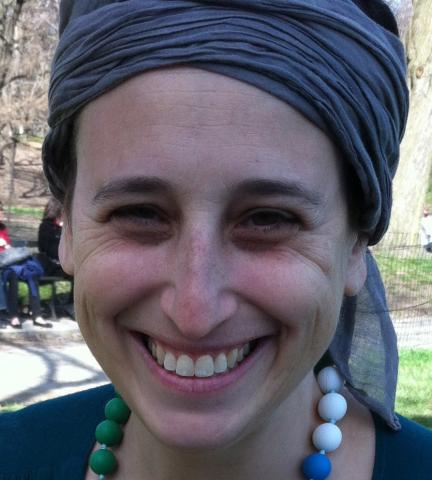Week 2 Reflections from Jen Abrams

Our second week of White Conversations For Racial Healing was exhilarating. And exhausting, and fraught. We set up in the park less than 48 hours after the Rachel Dolezal media circus derailed the important conversation that was happening about a young black woman abused by a white police officer at a pool party in Texas.
In truth, both of those stories are transient. The Texas story is simply a high-visibility iteration of a story that plays out every day, all over the nation. The Rachel Dolezal story is complex, but the layer of it that has the country transfixed is just the story of white privilege taken to its logical extreme. It reminds me of the opening line from the Battlestar Gallactica reboot: “All of this has happened before. All of this will happen again."
And in fact, it is happening. As I write this, the nation is grieving nine human beings shot down in the place that was supposed to be their safe haven. Nine brown humans shot by a white supremacist, who was also human, despite our desire to distance ourselves from him.
White parents raised all three of these individuals. They grew and formed themselves in white environments. Doesn’t that make this a white problem?
We were in the park to try to help people connect the dots from Dylann Roof through Rachel Dolezal through Eric Casebolt to themselves. These are our core questions: in what ways does white culture - subtly and without our permission - create the environment for these to stories germinate? What does the daily, personal practice of un-creating it look like for white people?
To which you might answer, “oh god, I just want to crawl in a hole. All of this is too painful and overwhelming.” And I’d understand that response. But believe me when I tell you that you’re going to find these problems in your hole, too. Because isolation and paralysis are part of white culture. And isolation and paralysis hurt too. And if you think about structural racism as a virus evolving to preserve and propagate itself, what better environment could it ask for than a lot of people who just want desperately to ignore it?
Here’s one thing I’ve learned through this project: being actively involved in dismantling racism eases the pain of these stories. Having a concrete way to channel my grief and anger makes those feelings useful, not debilitating. It makes me engaged, not overwhelmed. It makes me powerful, not paralyzed.
